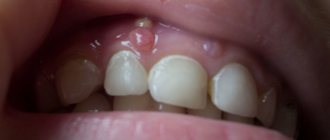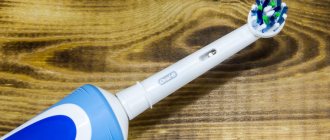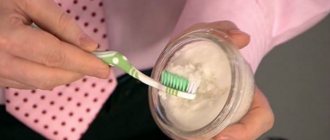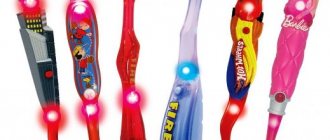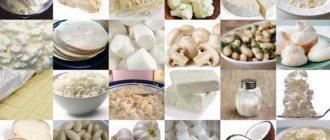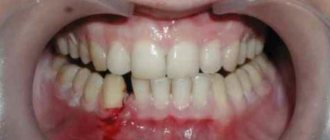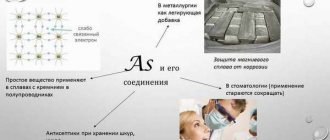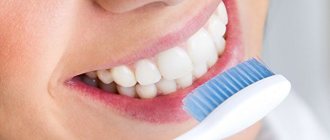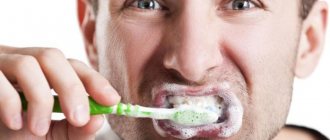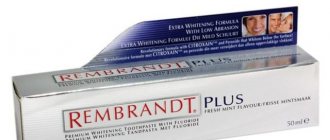How did our ancestors manage without brushing their teeth?
Despite the absence of cleaning products, balms, and rinses for teeth in past centuries, people cared about their condition.
Attention! Our ancestors used crushed dried herbs mixed with chalk or charcoal to clean their teeth. Decoctions of chamomile, oak bark, and propolis tincture were used to rinse the mouth. Instead of a toothbrush, a piece of cloth was wrapped around a finger and moved over the teeth and gums. Ladies of high society chewed tree resin, tree bark, and mint lozenges to freshen their breath and clean their teeth after meals. A striking example of what happens if you never brush your teeth on principle, following the example of predators, tigers, for example, is known in world history. The totalitarian Chinese leader Mao Zedong decided not to consciously engage in such a hygienic procedure, believing that if animals do without it and have white, strong teeth, then humans do not need to do it either. There were no people willing to object to the ruler. As a result, Mao's teeth gradually turned yellow, then green, and his breath became foul. But, as in the old fairy tale about the naked king, no one from his entourage dared to reprimand him. Totalitarianism does not even allow the thought of the unpleasant personality traits of the helmsman. Mao Tse Tong's mistake was to equate predators and humans on this issue. After all, our diet is different, and the smell from the mouths of lions and tigers is very unpleasant, even though the fangs are snow-white. People eat a lot of tasty but unhealthy food with chemical additives, drink coffee, strong tea, and smoke, which contributes to a specific plaque and bad breath that cannot be removed without cleaning. In the modern world, the argument that ancient people somehow managed without such a hygienic procedure does not work. But they either died early or were left without teeth early, as evidenced by archaeological finds.
This image shows a primitive toothbrush, which was made from a stick and special grass, as well as a toothbroom - a wooden stick with a tuft of bristles.
Want to replace toothpaste with carrots, apples and oak bark? This is not enough to remove plaque completely, and the acid and glucose from these products will only add to problems in the oral cavity.
Dangers of Irregular Teeth Brushing
Plaque in the form of a film of food debris forms on the surface of the teeth within 2 hours after brushing.
As it develops, it creates conditions for filling the interdental space and surface of the teeth with bacteria that can cause caries. However, according to dentists, the main problem of oral hygiene is not caries. As stated in some specialized publications, the most common symptom of the formation of pathological processes in the mouth is bleeding gums during brushing. Bacteria, having multiplied excessively, cause inflammation of the tissues of the oral cavity, and this, in turn, leads to the appearance of a bad odor from the latter. An even more serious consequence is the development of gingivitis.
If you don't brush your teeth, so-called tartar can form. This is a hardened plaque that occurs at the site of plaque and consists of bacteria, food debris, dead cells, as well as iron, phosphorus and calcium salts. Bad breath can also indicate the presence of tartar. In this case, brushes and pastes are powerless - only professional cleaning in a dentist’s office can help.
All of the above dangers can lead to the development of periodontitis. Signs of the disease are inflammation and bleeding of the gums, pathological mobility of teeth, bad breath, and discharge of pus from periodontal pockets. This will require surgical treatment.
Irregular brushing of teeth or complete neglect of this procedure can lead to the appearance of psychological complexes. An unpleasant odor, a feeling of staleness in the mouth, yellow or gray plaque on the teeth can affect the internal sense of self and worsen the quality of life.
What are the dangers of not brushing your teeth?
Neglecting to brush your teeth can cause serious harm to your health. This is due to dangerous factors, the manifestation of which we provoke if we do not pay attention to oral hygiene. These factors are:
- Plaque - food debris stuck in the teeth is a breeding ground for germs and bacteria, which gradually leads to caries, toothache, and other problems in the oral cavity.
- Tartar - plaque gradually turns into a persistent deposit that can only be removed in the dentist's office.
- Bad breath - leftover food gradually rots and decomposes, releasing an unpleasant putrid odor. This negative feature makes human communication difficult. Breathing on a colleague or loved one, emitting a stench, means showing disrespect for the interlocutor. This makes him subconsciously want to stay away from you.
- Inflammation of the gums, periodontal disease, is a serious disease that leads to loose teeth, bleeding gums, and sour breath. Requires medication or surgery and is at risk of losing teeth.
- Caries – in the process of exposure to plaque, acids and glucose, tooth enamel is destroyed, caries develops, accompanied by toothache. The tooth may become damaged and require the help of a dentist.
Lack of oral hygiene leads to the formation of plaque, its transformation into tartar, inflammation of the gums and the development of caries; all these processes are accompanied by bad breath.
Do you need to brush your teeth? Busting myths about oral hygiene
Author:
therapist Ukrainian Andrey
1 minute
1398
Everyone has heard that brushing your teeth twice a day, but why this should be done is a question to which few know the answer. After all, caries appears even in those who use a brush morning and evening - maybe it’s not worth it? Let's figure it out together.
Myth 1
There is no need to brush your teeth. In fact, of course, you need to brush your teeth at least twice a day, as dentists recommend. The fact is that after each meal, plaque begins to form in the oral cavity - a thin film of food debris, dead cells and bacteria. If you do not get rid of it in time, the enamel and gums will be exposed to the harmful effects of microbes, which may result in caries or inflammation. Plaque begins to appear within 2 hours after eating, so it is important to clean as often as possible. If you do not do this for a long time, then plaque can develop into tartar - this is the most serious problem that has an adverse effect not only on the oral cavity, but also on the entire body.
Myth 2
A toothbrush is enough for complete oral hygiene. In fact, a toothbrush - even the most modern electric one - is not enough. Not a single brush is capable of cleaning the interdental spaces, gum pockets and other hard-to-reach places in the oral cavity, where the largest amount of food debris accumulates and, therefore, plaque forms more intensively. To cope with this task, after brushing with a toothbrush, you need to use a irrigator.
What is an irrigator? This is a special device that cleanses the oral cavity using a pulsating stream of water supplied under pressure. 50% more effective at eliminating bacteria in hard-to-reach places than a toothbrush and dental floss;
- reduces the likelihood of caries by 26%;
- removes 99.9% of plaque from the treated tooth surface.
Myth 3
An irrigator is only needed for those with braces. In fact, an irrigator is a device that absolutely everyone needs. Yes, most often people learn about it when they undergo orthodontic treatment, but the irrigator also has a number of other indications for use:
- bleeding and any other problems with gums, diabetes or pregnancy. A pulsating stream of water not only perfectly cleanses gum pockets, but also massages the gums, improving blood circulation in them and relieving inflammation;
- implants, crowns, dentures, etc. If they are present, oral hygiene is of paramount importance and directly affects the service life of installed structures;
- braces and retainers;
- crowded teeth;
- bad breath, including due to smoking;
- healthy oral condition is also an indication for the use of an irrigator, since it allows you to maintain this condition for as long as possible and prevent the occurrence of dental problems.
Terrible consequences
According to recent studies, people with periodontal disease are 4.5 times more likely to develop kidney disease than people with healthy gums. Another study found that retirees who don't brush their teeth are 65% more likely to develop dementia than those who practice good oral hygiene. The worst thing that can happen due to refusal to brush your teeth is the development of certain types of cancer.
Concluding from all of the above, it should be noted that spending just 4 minutes a day to maintain not only healthy teeth, but also to avoid more serious health problems is a fairly simple task.
Found a violation? Report content
“Many people don’t know how to brush their teeth”: a dentist about patient mistakes and myths about teeth
How does dental health affect overall health? Are “silver” fillings dangerous? Do I need to remove wisdom teeth? These and other important questions were answered by the hereditary doctor, dentist and head of the Moscow dental clinic, Mikhail Agami.
The first thing a specialist pays attention to is the fact that the condition of teeth affects the entire human body as a whole.
“We can say this: ideally, we have 32 teeth, counting the “eights”, wisdom teeth. So, if a person loses a third or two-thirds of his teeth, don’t go to a fortune teller: it will ricochet through the digestive system and so on,” explains Agami. – There are also some periodontal diseases that can indirectly affect cardiac function. There are serious scientific works on this topic. In principle, this is constant inflammation. And what we feel in our mouth, this unpleasant smell, is everything in our body, we swallow it.”
Therefore, Agami emphasizes that you need to visit the dentist periodically, and not when problems in the oral cavity become rampant.
“Many diseases, not only in dentistry, are a ticking time bomb. And if we don’t do a diagnosis on time, an ultrasound or some kind of check-up, we won’t know. The same goes for teeth. It happens that a person had a nerve removed at one time and everything is fine, nothing hurts. And this is natural, because there is no nerve and there is no pain. But practice shows that many people with removed nerves may have problems. Usually it all comes down to the appearance of an inflammatory process. We don't always feel it. We understand that there is a problem when it already manifests itself. That’s when we run to doctors,” says the expert.
So the opinion “if your teeth don’t hurt, you don’t have to worry” is wrong. To avoid surprises, according to the dentist, a small “technical inspection” should be carried out at least once every six months. In 90% of cases, this eliminates all problems in the future.
Another common mistake is poor oral hygiene. Yes, brushing your teeth is not as easy as it seems at first glance.
“It seems funny, but in reality many people don’t know how to brush their teeth. Some people believe that the harder they clean, the better. But this can lead to trauma, soft tissue may be damaged, gum recession may occur, and enamel injury may occur. Additional abrasion of enamel is a separate issue,” explains Agami.
Another myth regarding brushing your teeth: the more often the better. But this is not entirely true, the dentist notes:
“It is optimal to brush your teeth twice a day: morning and evening. This is the gold standard. The duration of cleaning should not be less than two minutes. At the same time, it is advisable to use a tooth rinse every time after a meal to normalize the pH balance and prevent the spread of bacteria that cause caries.”
It is also considered erroneous to believe that surgery in the summer is dangerous - you can get an infection, it is better to wait until winter.
“This is an absolute myth, which for some reason many people believed. But this statement is not true. The time of year has no effect, you don’t need to believe it,” the specialist states.
You don’t need to believe that the so-called “silver” fillings, silver amalgams that were placed before, are toxic. Fillings of the previous generation, says Mikhail Agami, are being written off early:
“In general, these are some of the best fillings that rarely change. They have a unique property - they almost never cause relapses of caries. And their biggest drawback is aesthetics. But in terms of functionality, I think this is one of the best things in dentistry that was invented in the 20th century. By the way, they are still actively used in Europe. I myself had such a filling: it was installed when I was 17 years old, but it lasted until I was 35. And in the end they changed it solely for aesthetic reasons. And the idea that such a filling causes harm is a myth that has no connection with reality.”
And finally, the dentist explains what to do with wisdom teeth: are they harmful or not, and should they be torn out or not.
“On the one hand, it is a myth that wisdom teeth must be removed, but on the other hand, in a sense, it is true. The eighth tooth in some people does not erupt correctly, and for some it causes great trouble. Because even if it has erupted correctly, it is at the very end, and it happens that an infection gets under the mucous membrane, under the soft tissue. This tooth is difficult to treat, as a rule, because it is difficult to get into.
But this does not mean that the wisdom tooth needs to be removed in any case. We never delete anything just like that. This is done if there are medical indications. For example, a wisdom tooth interferes with neighboring teeth and grows incorrectly, then yes. But the doctor’s task is always to interfere as little as possible,” Agami summarizes.
